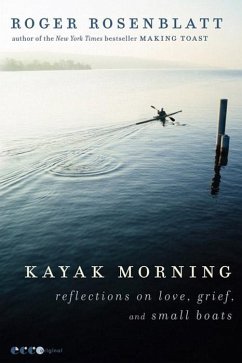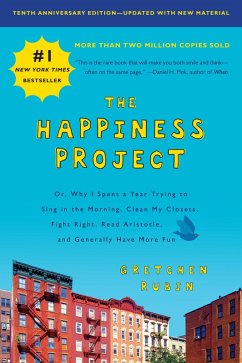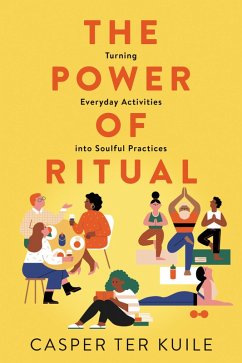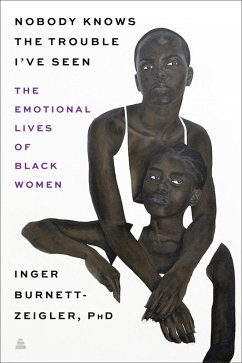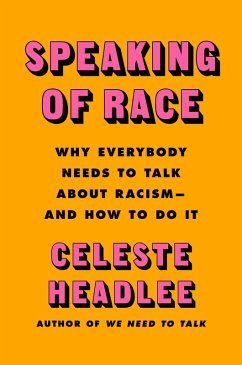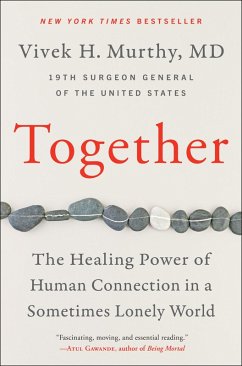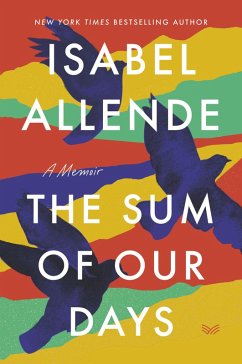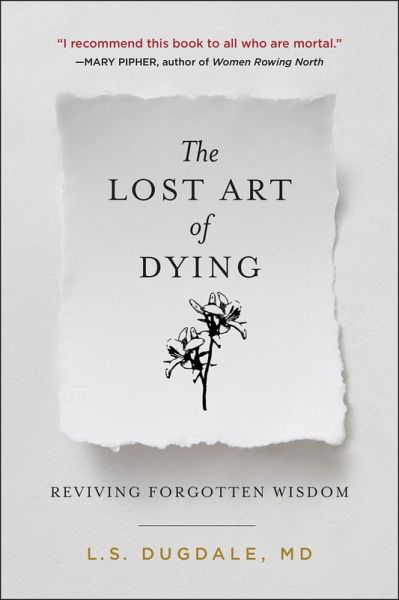
The Lost Art of Dying (eBook, ePUB)
Reviving Forgotten Wisdom
Versandkostenfrei!
Sofort per Download lieferbar
8,99 €
inkl. MwSt.
Weitere Ausgaben:

PAYBACK Punkte
0 °P sammeln!
A Columbia University physician comes across a popular medievaltext on dying well written after the horror of the Black Plague and discoversancient wisdom for rethinking death and gaining insight today on how we canlearn the lost art of dying well in this wise, clear-eyed book that is ascompelling and soulful as Being Mortal, When Breath BecomesAir, and Smoke Gets in Your Eyes.As a specialist in both medical ethics and the treatment of older patients, Dr.L. S. Dugdale knows a great deal about the end of life. Far too many of us diepoorly, she argues. Our culture has overly medicalized death: d...
A Columbia University physician comes across a popular medieval
text on dying well written after the horror of the Black Plague and discovers
ancient wisdom for rethinking death and gaining insight today on how we can
learn the lost art of dying well in this wise, clear-eyed book that is as
compelling and soulful as Being Mortal, When Breath Becomes
Air, and Smoke Gets in Your Eyes.
As a specialist in both medical ethics and the treatment of older patients, Dr.
L. S. Dugdale knows a great deal about the end of life. Far too many of us die
poorly, she argues. Our culture has overly medicalized death: dying is often
institutional and sterile, prolonged by unnecessary resuscitations and other
intrusive interventions. We are not going gently into that good nightour
reliance on modern medicine can actually prolong suffering and strip us of our
dignity. Yet our lives do not have to end this way.
Centuries
ago, in the wake of the Black Plague, a text was published offering advice to
help the living prepare for a good death. Written during the late Middle Ages, ars
moriendiThe Art of Dyingmade
clear that to die well, one first had to live well and described what practices
best help us prepare. When Dugdale discovered this Medieval book, it was a
revelation. Inspired by its holistic approach to the final stage we must all
one day face, she draws from this forgotten work, combining its wisdom with the
knowledge she has gleaned from her long medical career. The Lost Art of Dying is a
twenty-first century ars moriendi, filled with much-needed insight and
thoughtful guidance that will change our perceptions. By recovering our sense
of finitude, confronting our fears, accepting how our bodies age, developing
meaningful rituals, and involving our communities in end-of-life care, we can
discover what it means to both live and die well. And like the original ars
moriendi, The Lost Art of Dying includes nine black-and-white drawings
from artist Michael W. Dugger.
Dr.
Dugdale offers a hopeful perspective on death and dying as she shows us how to
adapt the wisdom from the past to our lives today. The Lost Art of Dying is a vital, affecting
book that reconsiders death, death culture, and how we can transform how we
live each day, including our last.
text on dying well written after the horror of the Black Plague and discovers
ancient wisdom for rethinking death and gaining insight today on how we can
learn the lost art of dying well in this wise, clear-eyed book that is as
compelling and soulful as Being Mortal, When Breath Becomes
Air, and Smoke Gets in Your Eyes.
As a specialist in both medical ethics and the treatment of older patients, Dr.
L. S. Dugdale knows a great deal about the end of life. Far too many of us die
poorly, she argues. Our culture has overly medicalized death: dying is often
institutional and sterile, prolonged by unnecessary resuscitations and other
intrusive interventions. We are not going gently into that good nightour
reliance on modern medicine can actually prolong suffering and strip us of our
dignity. Yet our lives do not have to end this way.
Centuries
ago, in the wake of the Black Plague, a text was published offering advice to
help the living prepare for a good death. Written during the late Middle Ages, ars
moriendiThe Art of Dyingmade
clear that to die well, one first had to live well and described what practices
best help us prepare. When Dugdale discovered this Medieval book, it was a
revelation. Inspired by its holistic approach to the final stage we must all
one day face, she draws from this forgotten work, combining its wisdom with the
knowledge she has gleaned from her long medical career. The Lost Art of Dying is a
twenty-first century ars moriendi, filled with much-needed insight and
thoughtful guidance that will change our perceptions. By recovering our sense
of finitude, confronting our fears, accepting how our bodies age, developing
meaningful rituals, and involving our communities in end-of-life care, we can
discover what it means to both live and die well. And like the original ars
moriendi, The Lost Art of Dying includes nine black-and-white drawings
from artist Michael W. Dugger.
Dr.
Dugdale offers a hopeful perspective on death and dying as she shows us how to
adapt the wisdom from the past to our lives today. The Lost Art of Dying is a vital, affecting
book that reconsiders death, death culture, and how we can transform how we
live each day, including our last.
Dieser Download kann aus rechtlichen Gründen nur mit Rechnungsadresse in A, B, BG, CY, CZ, D, DK, EW, E, FIN, F, GR, HR, H, IRL, I, LT, L, LR, M, NL, PL, P, R, S, SLO, SK ausgeliefert werden.




